If you are a business operating in the financial services sector, chances are, you have struggled with processes that involve manual tasks, productivity hurdles, and the unyielding demand for meticulous tracking of crucial metrics.
From the initial loan acquisition to the persistent follow-ups and eventual recovery, the journey is laden with complexities that demand innovative solutions. A comprehensive CRM solution is paramount. It's not just about managing data but also about transforming challenges into opportunities.
Godavari Urban Multistate Credit Co-Operative Society Ltd. Nanded found one such opportunity to streamline and optimize their debt collection process, and they chose Corefactors RevOps-enabling CRM. We will address the company as Godavari Urban henceforth for ease of communication.
This article covers how they successfully used Corefactors to address their manual task and productivity-related challenges while achieving scalability, customizability, and workflow visualization.
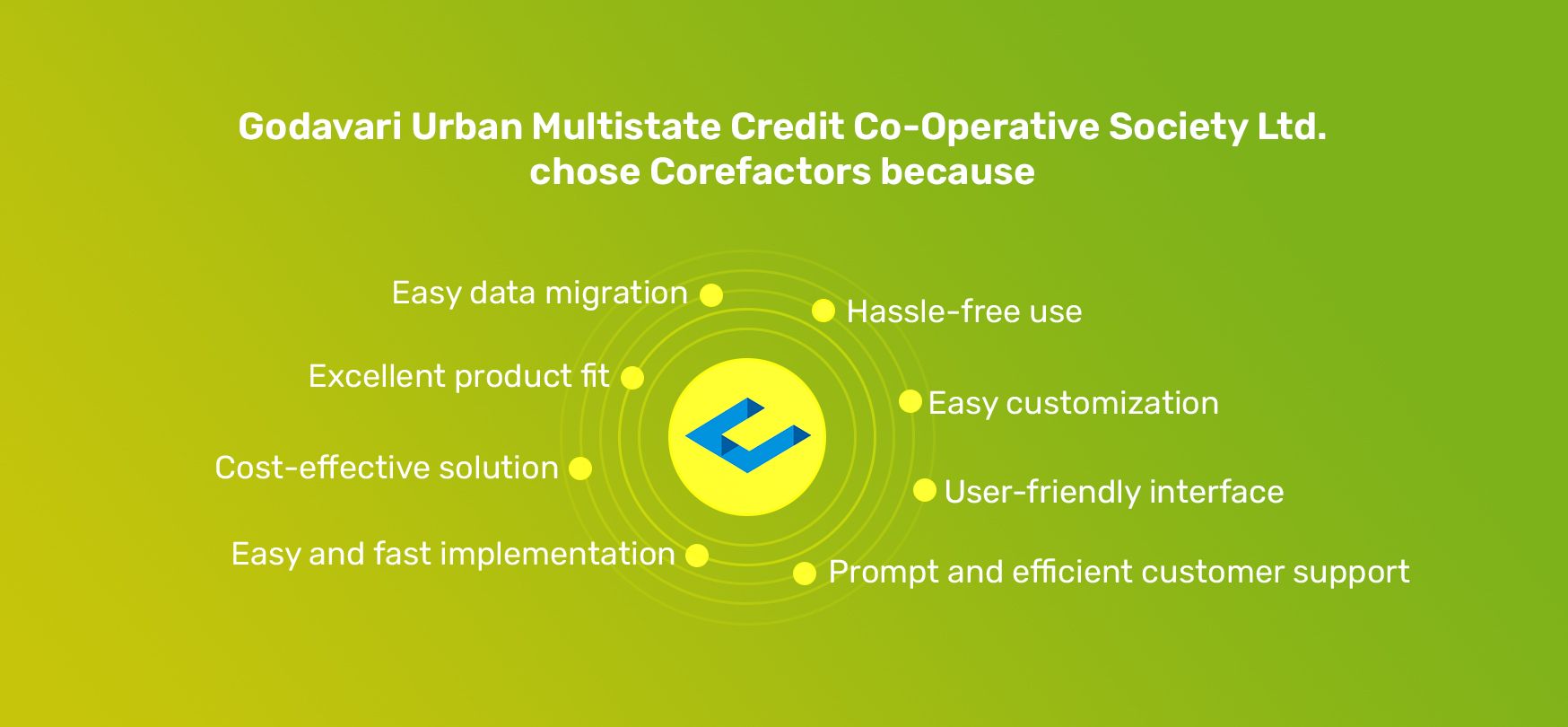
The Company
Godavari Urban Multistate Credit Co-Operative Society Ltd. Nanded is a credit co-operative society run by an autonomous group of people who came together voluntarily to meet their mutual social, economic, cultural, professional, and personal aspirations.
It was established on 08 May 2013. What began as a venture for the middle class now caters to the dreams of an extensive range of people from society.
Godavari Urban has acquired an ISO 9001 - 2015 for its quality management system. It stands out from other credit co-operative societies in the Indian landscape, in its use and implementation of technology to provide prompt and accurate service to customers from every branch.

Godavari Urban uses the capital from investments to provide loans to many small businesses and a lot of different ventures regularly.
The Challenge
It was during a consultation that Godavari Urban realized that they required a good technological solution to reach customers telephonically and also a system that would store this call data for further processes. They also needed a good CRM solution.
No software or tool was being used to make calls and note down the call status. Everything was done manually, with the data maintained and handled on Excel.
The manual process of finding the names and numbers of defaulters and then dialing each of them was tedious. Not to mention, there was no way to keep track of whether everyone on the list was called. This often led to missed follow-ups and was reflected in the collection amount.
Team leads struggled with monitoring the team's productivity and identifying areas that needed improvement.
The Corefactors Solution
“We scouted for the best CRM solutions, including the ones that top-class banks use. Corefactors stood out when compared to more mature players in the market. It was not only cost-effective but was also a good product fit for our use. The features and functionalities of Corefactors CRM matched our collection and recovery needs.”
Godavari Urban started using Corefactors at the beginning of 2023. The CRM fields were easy to customize according to Godavari Urban’s needs. Data migration was hassle-free and the implementation was fast. They went live with Corefactors in a very short span and have enjoyed its easy-to-use interface.
Corefactors acted as a collection and recovery CRM for Godavari Urban and helped them in the following ways.
- Tele Calling
Collection agents call defaulters to know about their promise to pay dates and then again follow up when that date comes. Imagine doing this task manually without any automation. This is what Godavari Urban struggled with the most.
The defaulter data is fed into the CRM every week. All that the collection agents have to do is place a call through Corefactors’ built-in cloud telephony feature. No manual phones are involved. Everything is on the cloud.
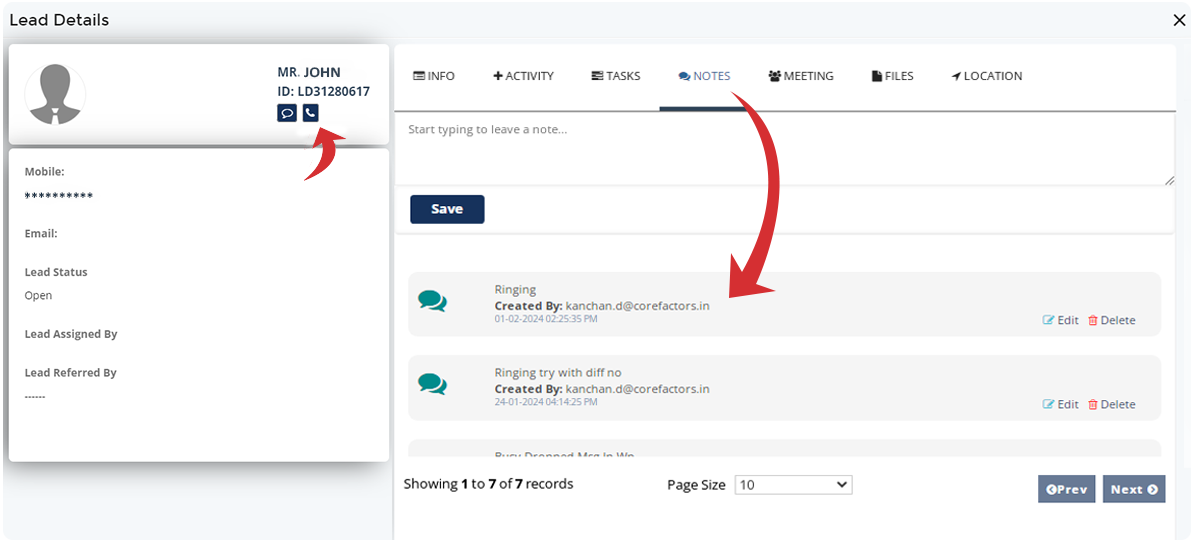
This makes it easier to call as the agents no longer have to manually search for a number and then dial it. They just need to click the call option under the Action items and a call gets placed. Important things can also be noted down in the CRM itself while on call.
All call information including whether the calls were answered or unanswered and the duration are captured in the system. The interaction between the agent and the customer is also recorded for future use as mentioned later.
2. Automated Workflow
The use of Corefactors as a collection and recovery CRM has enabled Godavari Urban to create an automated workflow. This greatly reduces the risk of human errors.
How often do we remember to call someone after, say, 15 days if we do not note it down somewhere that is easily visible? Now imagine doing this for 100 such contacts.
This scenario, in the absence of a centralized calling and CRM system, led to missed defaulter follow-up and incomplete collections.
On scheduling a call 15 days from today, Corefactors automatically sends the agent a reminder for this task through various channels. Constant reminders and task updates in the workflow have helped achieve the Godavari Urban team's 100% call rate.
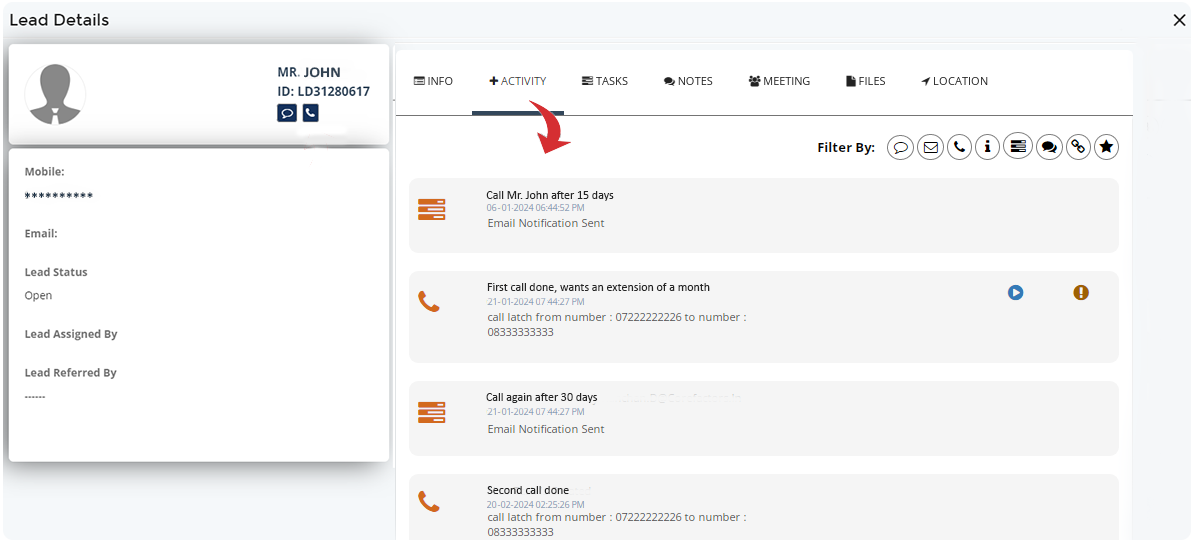
The automated workflow feature helps agents stay on top of their tasks without missing any step.
3. Increased Collection and Productivity
Manual data collection, organization, and maintenance often resulted in operational lapses. Missed follow-ups were not recorded and there was no way to track which call was missed. The audit of the quality of calls was also not being done regularly.
With the implementation of Corefactors, all calls are now tracked and recorded in real-time.
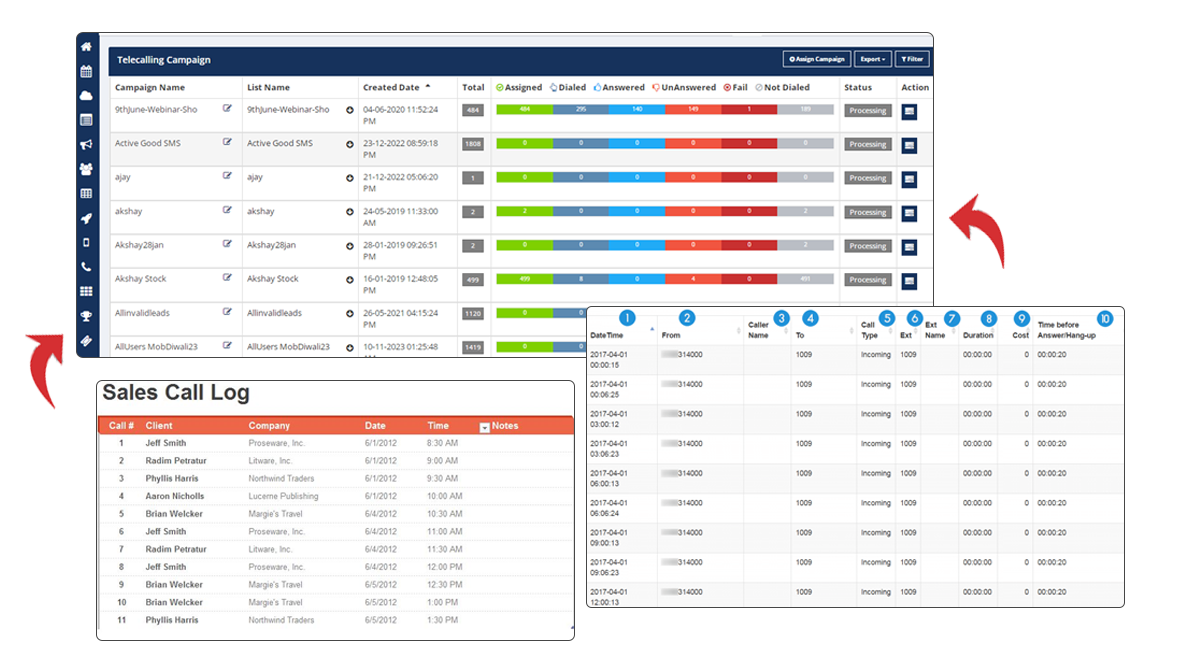
Access to call records enables the leaders and the management to perform regular quality checks and train the calling agents accordingly. Debt collection relies heavily on calling and the tone of voice plays a major role in every step of the collection process.
Team leaders now know that a certain call was made at 15:00 on Tuesday the 15th, and the interaction lasted for 15 minutes. They can now visualize things like
- How many calls have been made by their team?
- How many transactions or user cases are complete?
- What is the status of the incomplete user cases?
In a manual scenario, the answers to all these questions were obtained after analyzing the extracted data from Excel. They then had to be explained to the concerned professional. In this scenario, it is all real-time.
With the team spread across multiple branches, this feature makes it easier for the lead to monitor productivity, track all user cases, and identify bottlenecks.
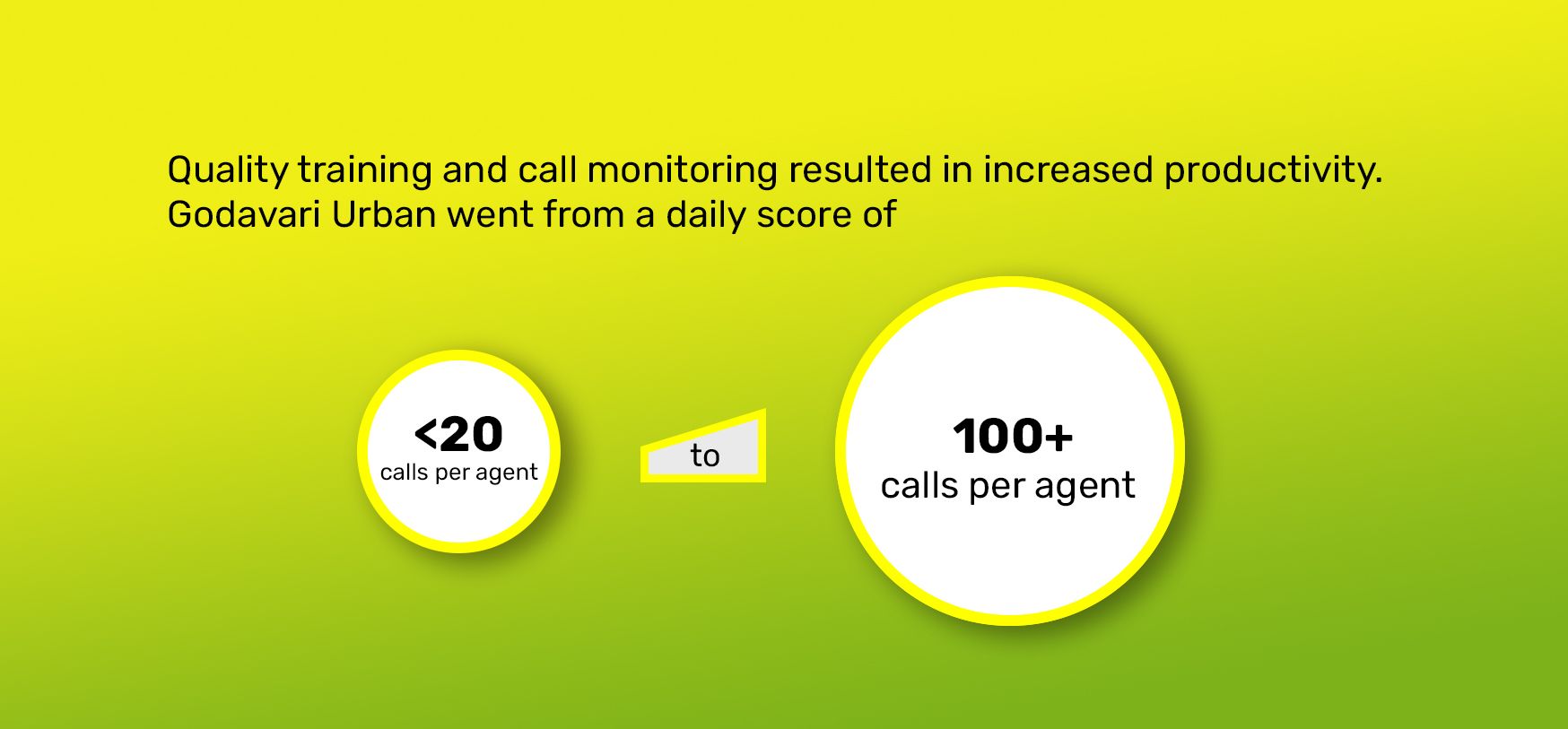
“Because 100% of calls are being made, the collection amount has also increased drastically. There has been a huge improvement in terms of the collection and recovery amount after the use of Corefactors.”
4. Establish a Structured Process
Calling was done earlier through physical phones after the agents received the data and extracted it from Excel. There was no centralized platform for data collection, tracking updates, and following the due process.
“After the implementation of Corefactors, collection as a process became more structured and data-driven. Hence, 100% of the need-to-have calls are being attended.”
Because of a workflow and a structure in place, the leaders use the data to set benchmarks. Godavari Urban was also able to build an internal data analysis dashboard for branch managers. This helps to track the calls and collection amounts in real-time.
What’s Next?
Having established a robust collection system with the help of Corefactors debt collection and recovery CRM, the next step for Godavari Urban is to work more on the debt recovery part.
Since Recovery involves an on-field team, they look forward to using the geo-tracking feature that Corefactors provides for the Recovery staff.
The Godavari Urban team is also planning on using certain APIs that make data migration from different systems to the CRM easier.
Corefactors is excited about Godavari Urban’s plans for the future and its role in it.







